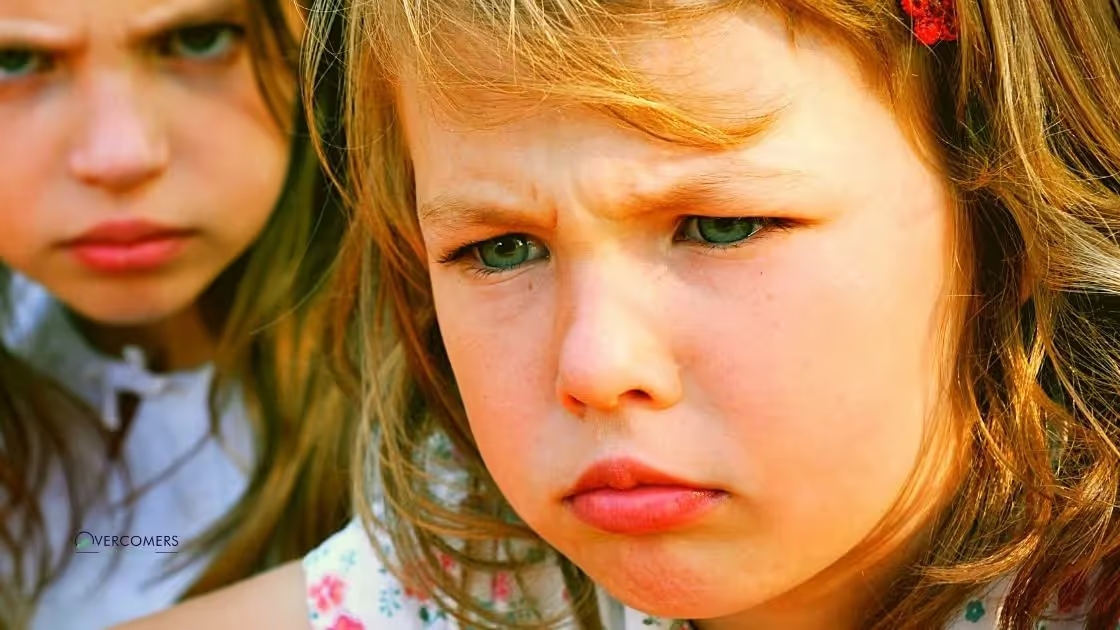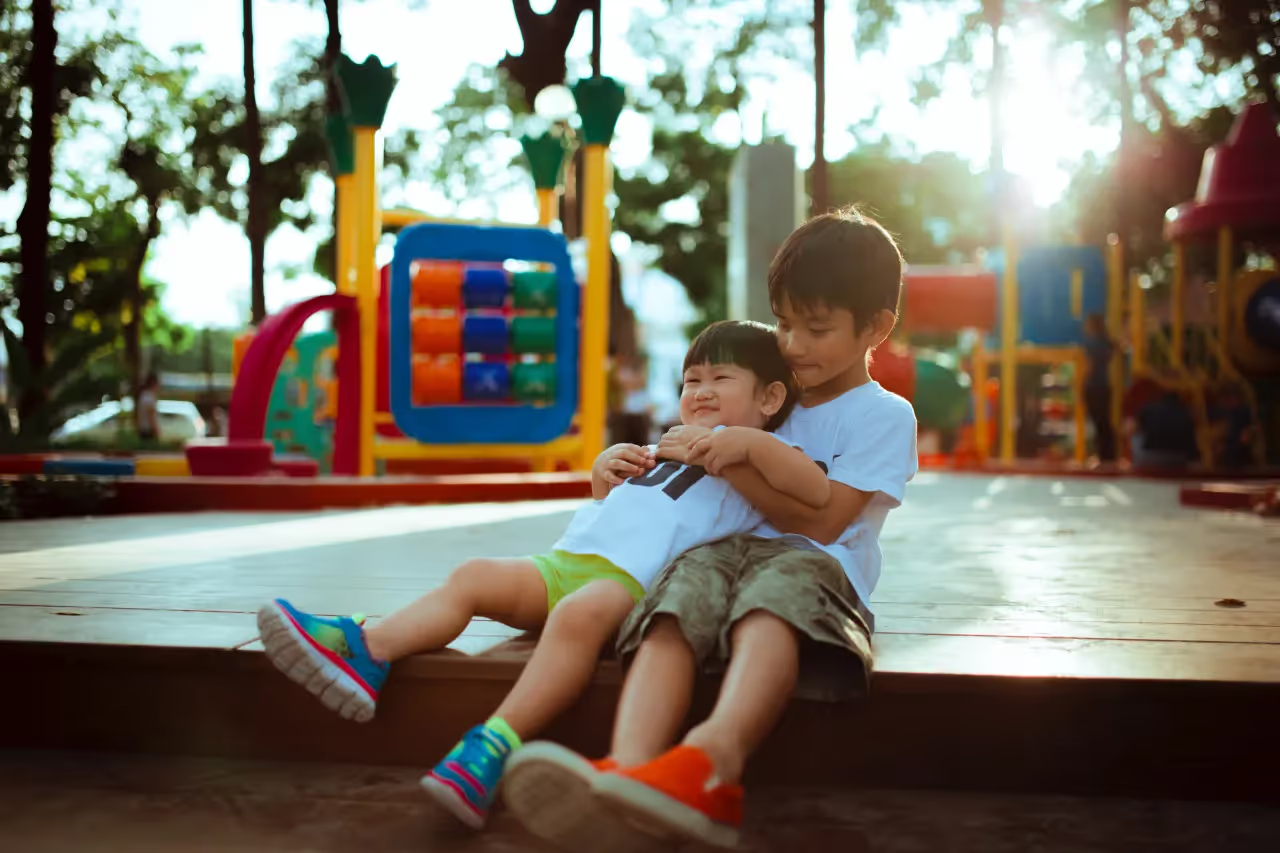Not every friendship is healthy; sometimes, your child might find themself in a controlling and manipulative one.Being friends with a controlling person can...

Not every friendship is healthy; sometimes, your child might find themself in a controlling and manipulative one.Being friends with a controlling person can be draining and unhealthy for your child's mental well-being.It may be difficult for your child to recognize a controlling friend; however, as a parent, there are examples of a controlling friend you should teach your child.A friend who makes everything transactional is an example of a controlling friend your child should know about.This type of friend would never do anything for your child without expecting something else in return.They tend to keep count of every favor.Another example of a controlling friend is one who likes to create drama.This type of friend likes to complain and argue about things that do not even matter.They usually blow things out of proportion.In addition, a friend who constantly criticizes everything is controlling.They always try to point out the flaws of your child.As a parent, you should support your child by helping them out with this type of friendship because being constantly criticized may negatively impact their self-confidence.Continue reading to learn more about the examples of a controlling friend you should teach your child:
A transactional friend is a friend who always expects something in return whenever they do something for your child.This type of friend is one of the examples of a controlling friend you should teach your child to stay away from.Also, if your child's friend does nice things for your child with the ulterior motive of asking them for something in exchange, there is a high chance they are just friends with your child for selfish reasons.Controlling friends usually view friendships as a transaction and keep tabs on every little favor.Similarly, this type of friend does things to appear overly generous just because they want your child to be indebted to them.They see their favors as a way to keep 'scores'.Once a good deed is done, they repeatedly bring it up to remind your child that they owe them.Furthermore, being friends with this type of person can be very demanding and exhausting.They may constantly demand that your child repays their favor, and when your child refuses, they may start to guilt-trip them.They may even withdraw their friendship because it no longer benefits them.
A controlling friend is a type to create drama for no reason at all.A friend who likes to start unnecessary arguments is another example of a controlling friend you should teach your child to avoid.Also, it is normal for friends to argue, but when one person constantly looks for things to fight about, it may lead to an unhealthy relationship.This type of friend picks fights with your child seemingly out of nowhere as a way to control your child's emotions, especially when they know that your child does not do well during conflicts.Similarly, if your child refuses to come to the defense of their friend in a fight with another person, they may begin to gaslight your child into thinking they are a terrible friend.In addition, a controlling friend is emotionally manipulative and may start drama to bring attention to themselves.When your child is in a happy situation, they can begin to sulk and pretend to be sad so that your child would give them attention.
A controlling friend may find fault in everything, even small things that should not matter.A friend who constantly points out the flaws in your child is one of the examples of a controlling friend you should teach your child to stay away from.This type of friend will often remind your child of their mistakes and flaws to make them feel inferior.They may never acknowledge when your child does something right.Furthermore, this type of friend can give criticism, but they can never take it.Suppose your child tries to correct their friend's bad action; they may throw a tantrum and try to manipulate your child into thinking they are being unnecessarily critical.In addition, if your child refuses to agree with them, it becomes a problem, and they might threaten to stop being friends with your child.

Your child's friend may use social isolation to control your child.A friend who keeps your child from interacting with other people is an example of a controlling friend you should teach your child to stop interacting with.Controlling friends usually feel insecure and threatened when your child has other friends.A controlling friend may try sabotaging those relationships by spreading lies about your child.They may also try to influence your child's choice of friends.Also, a controlling friend may not only try to control your child's friendships, but they may also control the time your child spends with family.This type of friend finds ways to separate your child from your family by forcing your child to spend more time with them.Furthermore, social isolation is a way for a controlling friend to force your child into remaining friends with them.Socially isolating your child also gives them more control over your child's life as it becomes more difficult for your child to break away when they don't have other people to turn to.
When your child is friends with someone who does not have regard for their feelings and emotions, it might indicate that your child's friend is controlling.This type of person is an example of a controlling friend you should teach your child to avoid.A controlling friend hardly cares about your child's choices as they are always concerned about themselves.They consider their feelings above your child's and are not bothered about your child's opinion.If your child complains, they might label your child as sensitive.Similarly, a controlling friend may constantly invade your child's space because they do not respect them.Such a friend has no regard for your child's privacy and may manipulate your child into sharing personal details with them.Furthermore, a controlling friend only shows concern for their own benefit. They have no respect for boundaries, nor will they acknowledge your child's likes or dislikes.
It can be difficult for your child to accept that their friend is controlling them, and they may try to overlook their behaviors. However, being friends with a controlling person can be detrimental to your child's emotional and mental well-being. Thus, as a parent, you must support your child by helping them point out behaviors that may indicate that their friend is controlling.Examples of a controlling friend you should teach your child to avoid include a friend who makes everything transactional, a friend who likes to create unnecessary drama, a friend who constantly criticizes everything, a friend who socially isolates your child, and a friend who does not care about your child.
https://www.verywellfamily.com/signs-your-friend-is-controlling-and-a-bully-460803
https://www.lifehack.org/901853/signs-of-a-controlling-person
https://www.healthline.com/health/controlling-people#blaming-you
https://www.mindbodygreen.com/articles/signs-of-controlling-person
Help your child by providing support and guidance, using positive language, highlighting the progress they have made, breaking down the challenge into smaller steps, and motivating them with positive affirmations.